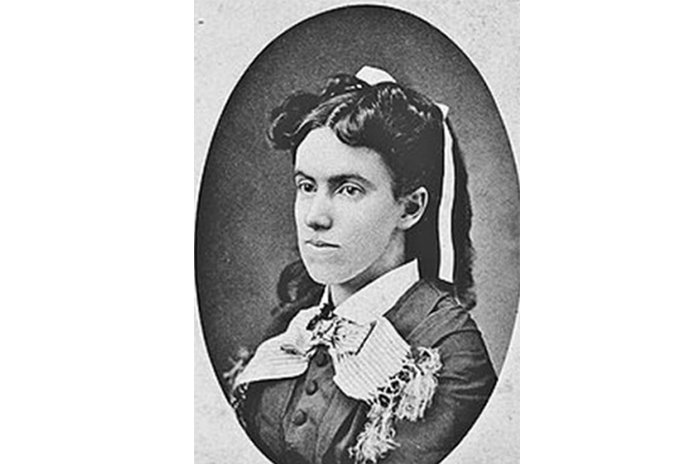Dr. Evan Liu, from Mandarin Program Midwestern Baptist Theological Seminary (MBTS), delivered an online seminar titled “Gospel to China, Moon’s Mission Strategy and Inspiration”.
The Lottie Moon International Online Conference: Christian Mission Collaboration was conducted virtually to honor the 110th anniversary of the death of Charlotte “Lottie” Moon, a revered American Baptist missionary who gave her life to Shandong Province.
With the title of “Here am I. Send me!” (Isaiah 6:8), the conference aimed to celebrate Lottie Moon’s selfless service in evangelizing Chinese people and to encourage global Chinese Christians to be one in the mission field, regardless of denominational differences.
The following is the contents of what Dr. Evan’s shared on February 26th:
In 1885, Lottie Moon rode a donkey from Dengzhou to Pingdu for missionary work, which established the first case of a western single woman ministering in China’s inland. She experienced the First Sino-Japanese War of 1894-1895, the Boxer Rebellion, and the Revolution of 1911. She was the pioneer inland single female missionary and the pioneer overseas single female missionary who independently did church planting. Moon received two invitations from President Roosevelt the senior. Yuan Shikai, the Shandong warlord, also went to her church to listen to sermons. Lottie Moon brought apple seeds from Virginia to Penglai, Shandong. During her more than 40 years of service in China, she established more than 40 schools and 30 churches in Shandong. At that time, thousands of Chinese were converted to the Lord.
Lottie Moon’s mission strategy one: when in Rome, do as the Romans do
Moon insisted on abiding by a traditional Chinese dress code. She mastered Mandarin and Penglai dialect spoken skills and could speak in them fluently. She gave herself a Chinese name “Li Ti Ao” which could be easily remembered by local people. By contrast, some cross-cultural missionary organizations today do not pay enough attention to language skills, which makes it difficult for missionaries to break through in their ministry.
Lottie Moon’s mission strategy two: the love for life
Lottie Moon was also known as Miss Biscuit because she often put cookies she baked at the doorstep so that children could come to eat them. Then she would contact the children’s mothers to build a gospel bridge with love. Today’s cross-cultural missionary organizations, on the contrary, don’t pay enough attention to the cultivation of the love for life, but only pay attention to distributing leaflets along streets and giving sermons in public.
Lottie Moon’s mission strategy three: imitating Jesus and entering the house of peace
Moon often rode donkeys from village to village, looking for homes of peace everywhere, and then entered the homes of simple ordinary people to greet them and answer any questions they had.
Lottie Moon’s mission strategy four: establishing a stable system of mission and support
Lottie Moon trained many disciples. Moreover, many women-led missionary groups were established. In 1911, Lottie Moon established the “North China Women’s Missionary Association” (original English name was not found, translator’s note) in Dengzhou, and served as the president. She called on all the churches of the Southern Baptist Convention (SBC) to take action not only to give financial support but also to organize prayer groups to pray for overseas missionaries and encourage women to join in the missionary movement. Consequently, the “Women’s Missionary Association” (original English name was not found, translator’s note) was born raising funds for overseas missions. The first “Lottie Moon Christmas Offering” raised US$ 3,315.26, which was enough to assign three missionaries to China at that time.
Since 1888, many SBC churches have a special Christmas service called The First Christmas Offering for missionary ministries every year. In 1918, it was changed to “Lottie Moon Christmas Offering” which was dedicated solely to supporting overseas missionaries.
Lottie Moon’s mission strategy five: the willingness to sacrifice
In the Great Famine in Shandong in 1912, Moon gave all her food to the victims. On December 1st, Lottie Moon fainted in bed because of hunger. Other missionaries put her on a ship bound for America when there was no local remedy. When the ship was passing through Kobe Port, Japan, Lottie Moon died of chronic hunger on Christmas Eve, December 24th, 1912.
Churches beyond nations - the Global Church
How can the “Gospel to China” be prepared and implemented? The speaker listed out five points:
1. Inside-outside cooperation: mission starts from oneself regardless of scale; pay attention to participation, reflection and feedback, communication and coordination.
2. Be mature and practical; implement proper and appropriate strategies; and missionary training and courses should conform to biblical teachings.
3. Cooperate with mature missionary sects, such as the international mission of the Southern Baptist Convention.
4. Chinese community churches should become missionary churches (instead of waiting for 50% evangelization in China, all churches should consider cross-cultural missionaries); Chinese churches need such a transformation.
5. Compose more songs for Chinese missionary work to encourage and inspire.
For instance, the China Servant Center in Chicago (original English name was not found, translator’s note) provides cross-cultural missionary training programs specializing in the training for South America, the Arab world and Israel. There are missionaries in Peru. In the past six months, 45 local Peruvians came to believe in the Lord.
The Chinese Servant Center also provides training in Spanish, Arabic or Hebrew to those who are aspiring to do missionary work in the team and will organize these missionary experiences in the future. They also provide a free online training course in missionary language to a school in Myanmar.
The Chinese Servant Center will continue to carry out cross-cultural deepening and guidance courses, consider offering biblical and practical cross-cultural spreading and courses in cooperation with the Southern Baptist Convention. In addition, they plan to jointly offer short-term missionary training courses for churches with local missionary organizations.
- Translated by Charlie Li













